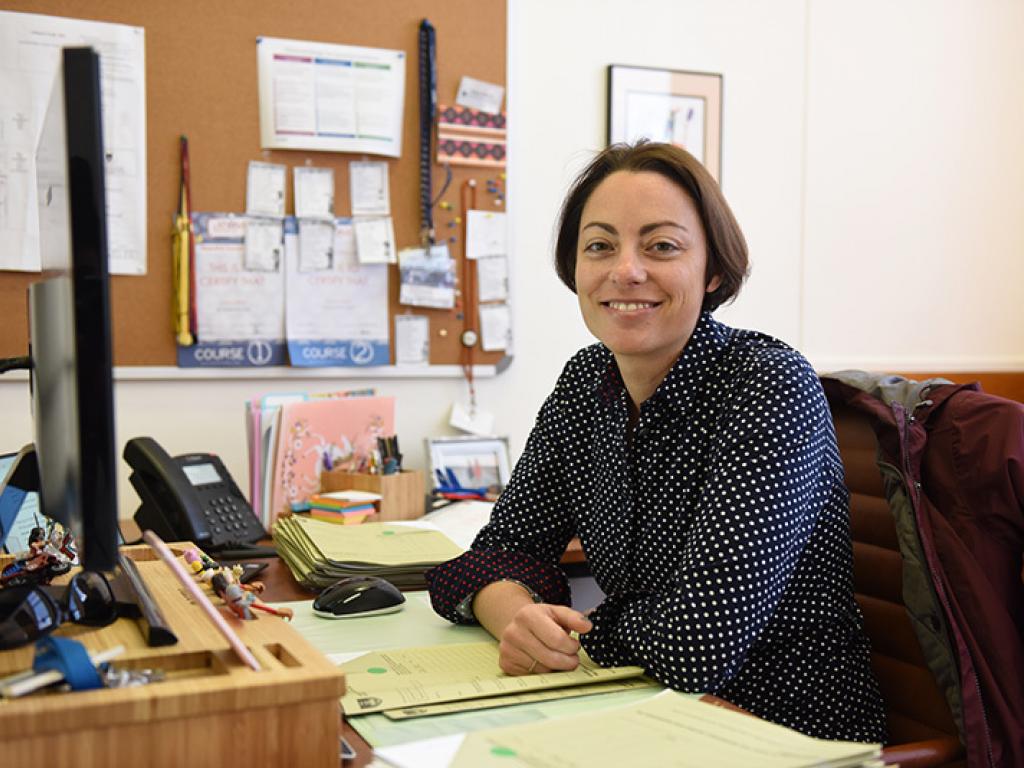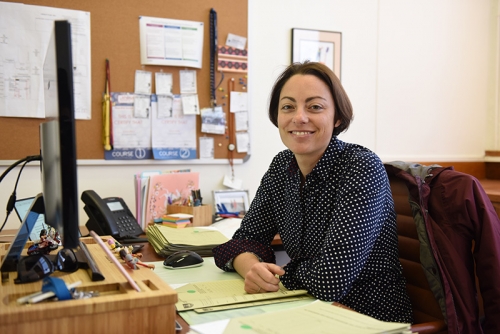Windfall helps train undergrads in air sampling


Oceanographer Dr Katye Altieri will use her Claude Leon Merit Award to train undergraduates in air quality analysis. Photo: Robyn Walker
Atmospheric chemist Dr Katye Altieri will use her Claude Leon Merit Award, one of five awarded to UCT researchers in 2017, to teach oceanography and atmospheric science undergraduates the rudiments of conducting air quality analyses.
The Claude Leon Merit Awards recognise meritorious scholarly work by early-career academics in natural sciences, medical sciences (excluding clinical research) or engineering.
A National Research Foundation P-rated researcher (researchers under 35 who are expected to become future international leaders in their fields), Altieri’s research interests are climate and biogeochemistry in the marine atmosphere.
Her focus includes surface ocean-lower atmosphere nitrogen cycling, the impact of air pollution on the ocean, and the chemical composition and climate impact of organic aerosols. (Aerosols are colloidal suspensions of particles dispersed in the air or in gas.)
Altieri will use the award money to set up a portable ambient aerosol sampling system for her research and to train students in air quality analysis. It’s something she’s always wanted to do for undergraduates.
“These little pots of funding are great because they allow you to do these additional activities and demonstrations with undergraduates to connect research and teaching,” she says.
“Undergraduates don’t do much of this kind of work and I’m keen to teach them a marketable skill for future employment.”
Air pollution is also something that captures students’ interest as Cape Town is renowned for its winter “brown haze” when a dirty layer hangs over the city.
“It’s something we’re all aware of because it impacts on our health.”
The air filters will give students a very visual appreciation of the city’s air quality.
“I can show them the difference between what you’d collect in Cape Town in winter versus what was collected in the summer. It’s a nice introduction for the undergraduates because it’s straightforward and introduces them to the idea of using aerosol-based filtration sampling.”
Altieri’s goal is to slot this training into a course on atmospheric chemistry and air pollution
Story by Helen Swingler
